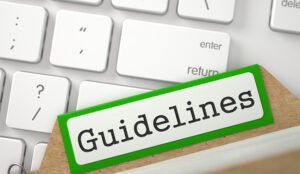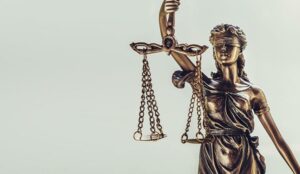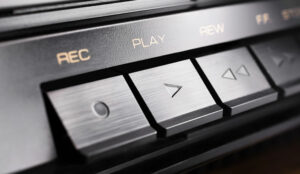Alexandra Texier at Odigo explains how Contact Centre as a Service (CCaaS) solutions are taking extra steps to bring their technology in line with legal requirements.
Quality assurance, also known as quality control, has become a standard practice for contact centres.
How often have you heard the phrase “This call may be recorded for quality and training purposes. If you do not want to be recorded …”.
It protects brands, customers, and agents alike. Although a simple concept, it often relies on complex strategies for recording, reviewing and reacting to insights.
It’s an integral part of delivering a top-tier customer experience (CX), generating customer loyalty and boosting brand growth.
One way of assuring that quality is through the recording of telephone calls between customers and your contact centre.
How Contact Centre Call Recordings Are Governed
Primarily, regulation is through privacy laws and telecommunications laws, including data protection regulations like the General Data Protection Regulation (GDPR). Specific contact centre call recording laws do, however, depend on the country and region.
In the UK and many other European countries, customers have a right not to be recorded without their consent or knowledge.
Recorded messages prior to connection with an agent, notifying customers of this possibility, are a commonplace way of maintaining compliance.
Organisations serving multiple countries also need to be aware that contact centre call recordings in the EU are also governed by the second edition of the Markets in Financial Instruments Directive (MiFID 2).
The MiFID 2 governs just about every asset and profession in the European financial services sector, most relevantly the recording, storing and tracking of all communications including phone conversations.
There are some national laws that can be stricter than GDPR or MiFID 2. For example, under German law it is not allowed to record conversations without the prior explicit consent of all parties involved (per §201 of the German Criminal Code).
This means that you need to get express permission from customers before you start recording their calls.
If you fail to do so, it could lead to serious consequences such as criminal charges against your company or employees, fines or even jail time.
Using and Storing Contact Centre Call Recordings
There are multiple uses for contact centre call recordings. Here are some of the most common:
- Contractual purposes, such as with utility companies or other service providers.
- Legal obligations in specific industries, such as healthcare or financial services.
- Transcription, which benefits brands by helping them learn about their audience.
- Protecting the interests of customers and brands alike by protecting them against fraud or misrepresentation.
- Training purposes, such as demonstrating contact centre tools to new recruits.
These can be fundamental to the functioning of a contact centre and to the idea of quality assurance.
For example, agents and supervisors can listen back and critique calls together, so that feedback can be provided, and performance can be optimised.
Such contact centre call recordings also make resolving disputes easier because it eliminates uncertainty about what was said during each interaction.
Retaining and using all this data is subject to a variety of regulations, though, which contact centres must be aware of or risk facing fines.
Alongside any industry-specific regulations is UK GDPR or European GDPR, depending on the location of your customer base.
Call recordings class as personal data and as a result, should only be retained for as long as needed and ideally for the shortest time possible.
This is closely tied to the need for organisations to have a good reason to record calls like contractual, legal or protective.
As already discussed, customers must be informed the call is being recorded. Encryption, pseudonymisation or anonymisation are preferred wherever possible, and customers must be granted access and, where appropriate, secure deletion upon request.
Complying with a request to delete a recording does depend on whether the original purpose has been fulfilled or if doing so may cause, for example, significant contractual or legal issues.
These complexities and consequences make security, organisation, appropriate use and well-established policies for call recording extremely important.
Contact centre call recording works as a fully integrated element of modern CCaaS solutions. This allows businesses to access real-time insights through data dashboards, which show metrics such as average handling time and noted reasons for call droppages.
With contact centre call recordings, you can pinpoint what was said, how it was said and better tune in to how to address it to optimise contact centre operations.
CCaaS data dashboards can also be customised to drill down on different metrics like percentage breakdowns by agent/queue/shift.
CCaaS solutions are updated automatically so you always have access to the latest tools and fixes to easily identify problem areas in your brand’s CX.
CCaaS Makes It Easier to Reconcile Business and Legal Demands
Contact centre call recordings are a necessary part of responsible and adaptive contact centre operations and rely on knowing the requirements in your country of operations and that of your customers. It’s a way to unlock insights and improve your brand’s customer experience.
The good news is that contact centre call recordings can offer great CX insights provided they are responsibly recorded, stored and used.
Today’s CCaaS solution providers are taking extra steps to adjust their technology to be more suitable for GDPR.
Author: Guest Author
Published On: 16th Jan 2024 - Last modified: 9th Dec 2024
Read more about - Guest Blogs, Odigo















